Tim Paine’s restraint at Australia draw with Pakistan shows that only winning is good enough
ROBERT Craddock: While the Australian team celebrated after the incredible draw with Pakistan, Tim Paine’s unspoken message was one that demonstrated the standards he expects: we haven’t won anything.
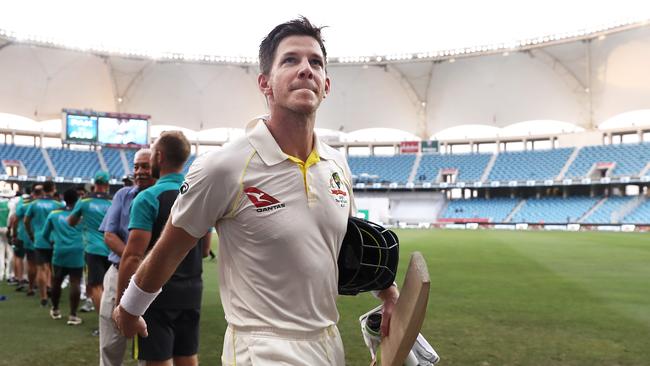
Cricket
Don't miss out on the headlines from Cricket. Followed categories will be added to My News.
TIM Paine could have been excused for doing star jumps and high fives.
Instead he saw the inevitable explosion of joy in the Australian dressing room and, like a schoolteacher asking for a bit of “sssh’’ on assembly, gently motioned his right hand up and down in a gesture of restraint.
His unspoken message as he left the field after Australia’s incredible first Test draw, was “easy on lads — we haven’t won anything yet.’’
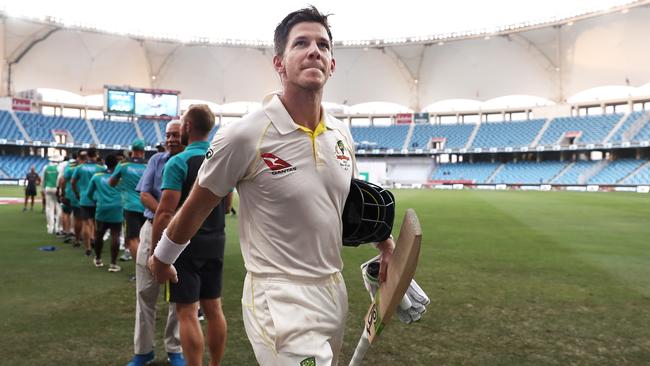
MORE NEWS
CRITICS: Uzzy hits back in the best way
PLAYER RATINGS: Who saved Australia from humiliation
Maybe Paine remembered the famous 2005 Ashes Test at Old Trafford where Australia raucously celebrated escaping with a draw and rival captain Michael Vaughan and his team noted their joy as a sign of a team happy with second best.
The maturity of Paine’s gesture and his presence of mind to be thinking big picture in the euphoric aftermath to Australia’s Great Escape, summed up a five day effort which will stand as one of the outstanding performances by an Australian keeper.
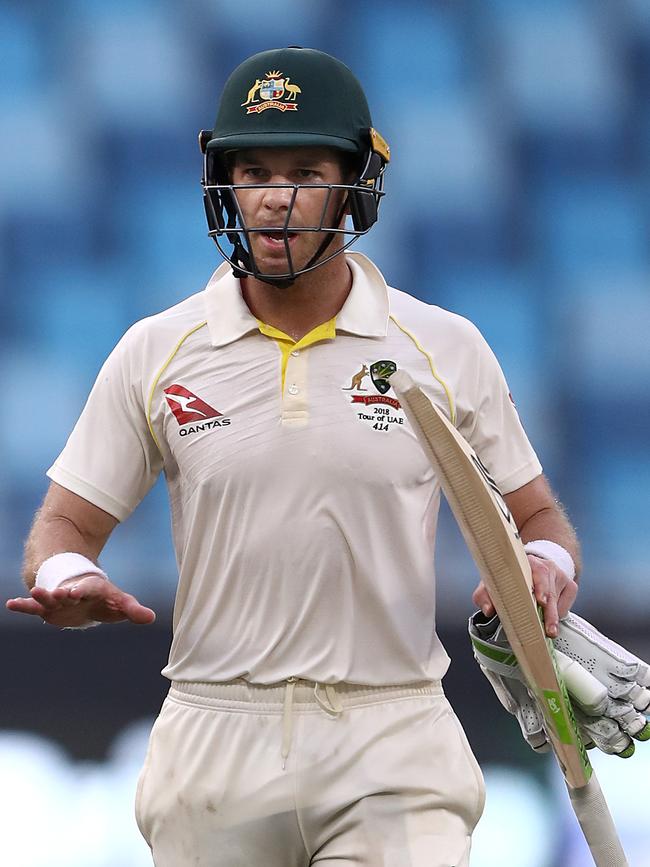
Paine’s last day 61 not out may in time fade into the shadow of Usman Khawaja’s epic century but it was a memorable punchline to his audition for cricket’s version of Survivor.
He spent 138.5 overs of the match over the stumps with a helmet on keeping to the slow men in 36C heat and captaining the side as he did it.
For more than a century Australia has been loathe to make keepers captains so they are not submitted to such abnormal stresses yet Paine seemed to retain a withering focus.
The most underestimated part of his performance were his three first innings catches to feathered edges off the spinners.
These are the sorts of dismissals which never get the credit they deserve because they often look deceptively unspectacular.
Yet the margin for error is unnervingly small. The ball only has to deviate a couple of centimetres to make a keeper look a dill.
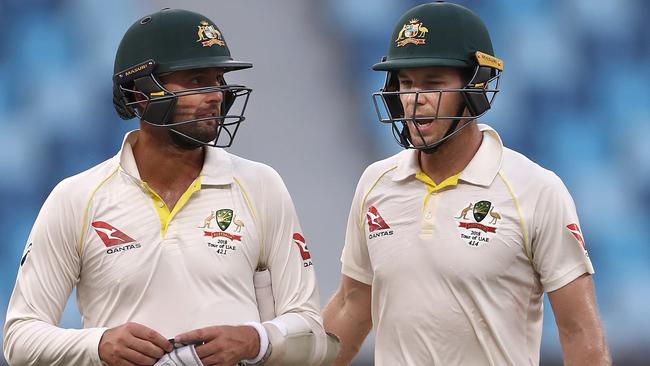
Keepers are the harshest judged players on the field. They get few plaudits when these little edges go in but a severe berating when they hit the deck.
No matter what lies ahead for Paine in this season of reason his performance in Dubai is evidence that the best of his work is the equal of many of his great predecessors.
He is also delivering a story unlike any other in Australian cricket, literally plucked from the Tasmanian Wilderness.
This time a year ago he could not even get a start for Tasmania. His progress is provocative because it makes you wonder who else is out there that could do a Tim Paine?
When Australia was dominating the cricket world in the early years of this century it produced a raft a players who played 100 Tests or more and the quality of the side was so exceptional that there was an unspoken assumption most new selections would go the ultra-long journey.
But hidden behind the gold studs were men who gave honourable, yet briefer service. Players like Damien Fleming, Darren Lehmann, Paul Reiffel and Chris Rogers all performed with distinction in careers spanning between 20 and 35 Tests.
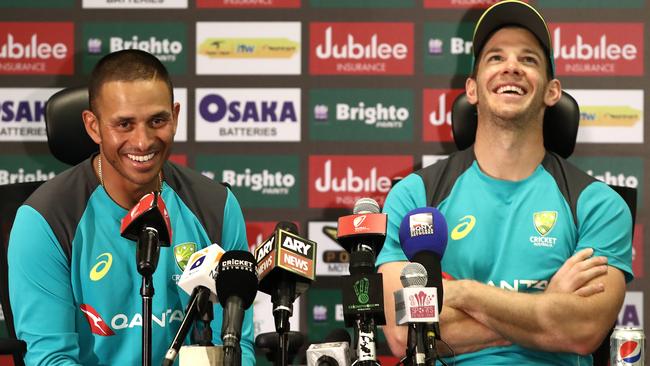
Paine, who has played just 14 Tests and turns 34 in December, is one of these types of players.
He won’t have the time to slip in beside Ian Healy or Adam Gilchrist in any Australian hall of fame but if he can burn brightly for a summer or two his contribution to Australia’s cricket landscape could be more significant than some players who played twice as many Tests.
The Dubai draw means so much to Australia because after the ball tampering scandal good manners were never going to be enough to win back the public.
They want grit and fight. They crave to be surprised by new heroes.
And this week, to their great delight, they were.
Originally published as Tim Paine’s restraint at Australia draw with Pakistan shows that only winning is good enough
